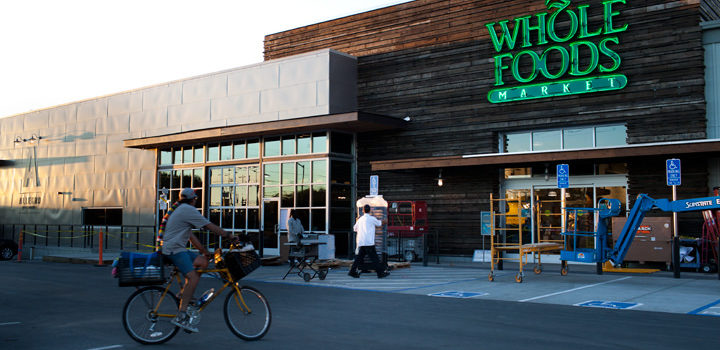
Innovation in the food retail market in United States: Whole Foods 365 and Friends
Everyone knows Whole Foods. In the USA and Canada is a very famous brand. This retail stores chain started in Texas in the 80s, and has steadily expanded through the entire USA and Canada, now also in Europe, specifically in England.
As we learn from an online magazine dedicated to innovation and startup companies, StartUp Mag, the brand has decided to fully embrace innovation, in order to lower the price for bio and organic produces.
In fact, the food chain has decided to make consistent and permeants cuts to their prices, introducing the 365 format.
They also want to help the small businesses and local producers, creating the “Friends” brand. What is it about?
Specifically, in the first case they opted to provide special tablets to customers, to allow them to verify where the product was sourced from, and they added robots that replace human assistants capable of picking goods from high shelves and able to collect and eventually mix materials for those products that are not sold in a pre packaged format (for example, liquid soap, paint, but also fresh produce).
By reducing the fixed costs and the part of the variable burden of the personnel cost, the retailer aims to reduce the price of products to the public, in order to provide hig h quality products at a convenient price, to have access to the market share of people who normally don’t shop at Whole Foods because their monthly budget for food does not allow them to choose something better than the standard brands.
h quality products at a convenient price, to have access to the market share of people who normally don’t shop at Whole Foods because their monthly budget for food does not allow them to choose something better than the standard brands.
The other idea is “Friends”, which allows local producers to open their own retail outlet within the Whole Foods locations.
Using this method, they are allowed to freely sell their locally grown food to the public, using the internal spaces for the large crown of a big retail store without having to sustain the burden associated to the rent of the location and any other associated cost that would heavily impact the bottom line of the small business. In exchange, Whole Foods required the owner to pay a small fee, but leaves him complete freedom of arranging the space.
Using these two ideas, the brand points to a service useful for the customers who wants to buy food without breaking the bank, and for the small producers and retailers who want to expand their niche market to a larger crowd, without competing with the major brands, in exchange they collect a monthly fee and reduce the cost of labor. Not bad for a move that has zero impact on costs!

